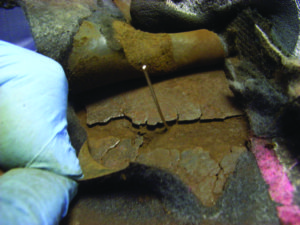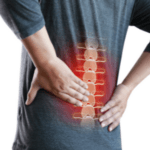Neil Hewitt, Divisional Director for Quality and Technical Standard at Arco discusses the unseen risks for your business when purchasing PPE.

Heavily corroded midsoles, leave them open to risk of penetration
Although we in the UK enjoy the benefits of working in one of the safest places in the world, with the lowest incident rates of work related deaths in the EU, there’s a gap in the compliance process that is putting UK workers at risk of injury, even though they are using CE-marked PPE they believe will protect them.
As a health and safety manager, you may believe that you and your people are fully protected and compliant when you specify or buy PPE.
The reality is that some CE-marked PPE is failing, putting its wearers at risk of injury and businesses and individuals at risk of loss of reputation, fines and even possible imprisonment.
The evidence is undeniable, particularly in the area of a number of CE-marked safety footwear and gloves that are freely available on the market. Independent laboratory testing in 2017 showed that around 40% of non-metallic footwear and 30% of rigger gloves failed surveillance testing, despite carrying the CE mark.

Midsoles must resist a force of 1,100 Newtons.
With around 600,000 workers each year reporting that they have suffered an injury at work, the consequences of failing to apply due diligence to PPE purchasing are huge.
Without a robust process in place, accidents and injuries could be life changing and not just for end users but for the individuals (and the businesses they work for) who are involved in specifying and purchasing the equipment.
If you are concerned about the risks of failing CE-marked PPE leaving you and your business exposed, Arco has created a short film about this important issue. CE markings do not guarantee compliance and as an employer or health and safety manager, you have an obligation to ensure that whatever you buy is compliant.
Approaches to managing the risks associated Musculoskeletal disorders
In this episode of the Safety & Health Podcast, we hear from Matt Birtles, Principal Ergonomics Consultant at HSE’s Science and Research Centre, about the different approaches to managing the risks associated with Musculoskeletal disorders.
Matt, an ergonomics and human factors expert, shares his thoughts on why MSDs are important, the various prevalent rates across the UK, what you can do within your own organisation and the Risk Management process surrounding MSD’s.




Good article but it does not advise how you can ensure compliance. Apart from purchasing a well established brand/manufacturer and ensuring the correct standard is met, I’m not sure what else you can do?….
Hi Lucie, thanks for the comment. It’s a case of ‘watch this space’ as we are in the process of putting together a follow-up article which will have some advice on the subject and what to look out for when purchasing.
Thanks, Ian
Even established and well known major brands have problems – flaming battery phones, burning tumble dryers all “CE” marked